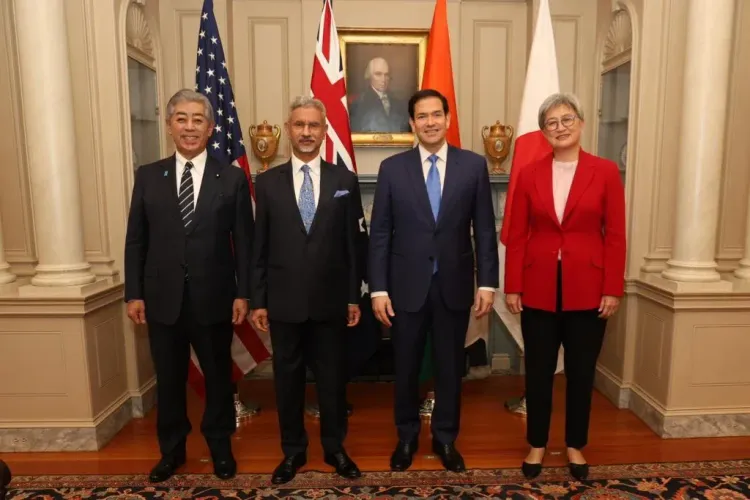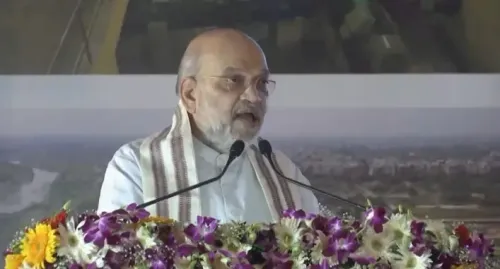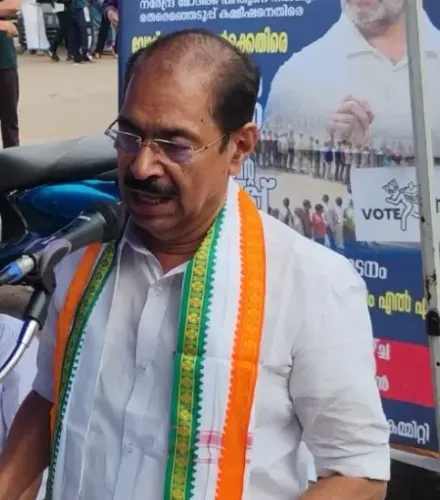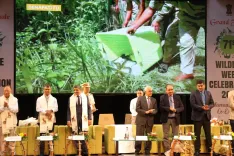How Did Quad Foreign Ministers Reinforce Their Commitment to a 'Free and Open' Indo-Pacific?

Synopsis
Key Takeaways
- Commitment to a free and open Indo-Pacific is reaffirmed.
- Opposition to coercive actions and unilateral changes to the status quo.
- Focus on maritime security, economic prosperity, and humanitarian assistance.
- Collaborative initiatives to address pressing regional challenges.
- Strengthening disaster response through coordinated logistics training.
New Delhi, July 2 (NationPress) The Quad Foreign Ministers have reiterated their unwavering dedication to a free and open Indo-Pacific and have condemned any unilateral moves that aim to alter the status quo through force or coercion.
"We emphasize our commitment to upholding the rule of law, sovereignty, and territorial integrity. As four prominent maritime nations in the Indo-Pacific, we stand united in our belief that peace and stability in the maritime realm are vital for the security and prosperity of the region. We are devoted to ensuring that all nations operate free from coercion and firmly oppose any unilateral actions that try to change the status quo through force or coercion," the joint statement released from the Quad Foreign Ministers' Meeting in Washington on Wednesday proclaimed.
US Secretary of State Marco Rubio, Indian External Affairs Minister S. Jaishankar, Australian Foreign Minister Penny Wong, and Japanese Foreign Minister Takeshi Iwaya convened in Washington on Tuesday (US time) to discuss the opportunities and challenges present in the Indo-Pacific and how to further leverage the strengths and resources of the Quad to promote peace, security, and prosperity alongside regional partners.
"To ensure the Quad's lasting impact, we are excited to unveil a new, ambitious, and robust agenda focusing on four critical areas: maritime and transnational security, economic prosperity and security, critical and emerging technologies, and humanitarian aid and emergency response. Through this renewed focus, we aim to enhance the Quad's capacity to address the region's most urgent challenges," the statement continued.
As the Quad group advanced their collective objectives for the region, they noted that "the cooperation with and support for ASEAN and its centrality and unity, the Pacific Islands Forum and Pacific-led regional groupings, and the Indian Ocean Rim Association (IORA) remain resolute."
Their joint statement also highlighted concerns regarding threats to regional nations arising from the use of force and coercion, implicitly referencing China.
"We are seriously troubled by the developments in the East China Sea and South China Sea. We reiterate our strong disapproval of any unilateral actions aimed at altering the status quo through force or coercion. We express our grave concerns regarding dangerous and provocative actions, including disruptions to offshore resource development, repeated hindrances to the freedoms of navigation and overflight, and the hazardous maneuvers by military aircraft and coast guard and maritime militia vessels, particularly the unsafe deployment of water cannons and ramming or blocking actions in the South China Sea," the statement elaborated.
While not naming China, it has conducted all these activities against the Philippines, Vietnam, and South Korea, and is involved in disputes with Malaysia over offshore oil drilling.
The Quad Foreign Ministers asserted that such actions endanger peace and stability in the region and voiced serious concerns regarding the militarization of disputed territories.
"We highlight the significance of maintaining freedom of navigation and overflight, lawful uses of the sea, and unimpeded commerce in alignment with international law, as reflected in the United Nations Convention on the Law of the Sea (UNCLOS). We affirm that maritime disputes should be resolved peacefully and in accordance with international law, reiterating that the ruling rendered by the Arbitral Tribunal on July 12, 2016, serves as a significant milestone and the basis for peacefully resolving disputes among the parties," they stated.
The Foreign Ministers announced pivotal initiatives that the Quad is advancing to bolster maritime and transnational security, economic prosperity and security, critical and emerging technologies, and to support humanitarian assistance and emergency response throughout the Indo-Pacific.
To enhance the Quad's capacity for disaster relief, the ministers announced plans to host the inaugural Quad Indo-Pacific Logistics Network field training exercise this year, aimed at improving shared airlift capabilities and leveraging their collective logistics strengths to respond to natural disasters more swiftly and efficiently, thus providing support for regional partners.
As the Quad continues to evolve, the statement reiterated that the four democracies remain committed to deepening cooperation in support of a free and open Indo-Pacific and ensuring that this collaboration leaves a lasting impact on the region's most pressing challenges and opportunities in the 21st century.









